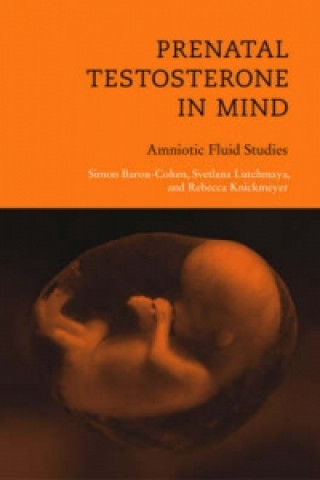
Doručení
Nákupní rádce





Nehodí se? Vůbec nevadí! U nás můžete do 30 dní vrátit
 Dárkový poukaz
V libovolné hodnotě
Dárkový poukaz
V libovolné hodnotě
S dárkovým poukazem nešlápnete vedle. Obdarovaný si za dárkový poukaz může vybrat cokoliv z naší nabídky.
Prenatal Testosterone in Mind
 Angličtina
Angličtina
 103 b
103 b
30 dní na vrácení zboží


This pioneering study looks at the effects of prenatal testosterone on postnatal development and behavior. Hormonal effects on behavior have long been studied in animals; the unique contribution of this book is to suggest a connection between human fetal hormones and later behavior. It details for the first time testosterone's effect on social and language development, opening a new avenue of research for cognitive neuroscience. The authors look at samples of amniotic fluid taken during amniocentesis at 16 weeks' gestation, and relate the fetal level of testosterone (which is present in fetuses of both sexes, although in different quantities) to behavior at ages 1, 2, and 4 years. They argue that the amniotic fluid provides a window into the child's past -- a chemical record of that child's time in the womb -- that allows informed prediction about the child's future brain, mind, and behavior. This is not the retrospective speculation of psychoanalysis, they point out, but an opportunity to study development prospectively and trace developmental precursors and causes of later cognition. The study suggests that prenatal levels of testosterone affect a range of later behaviors in children, from the inclination to make eye contact with others to the size of the vocabulary. It also suggests that prenatal testosterone level may be related to the development of typically "masculine" and "feminine" behaviors. The study's ongoing research explores whether fetal testosterone has any link with the risk of developing autism. Connecting endocrinology and psychology, the authors propose that there is a biological component to behaviors often thought to be produced by the social environment.
Informace o knize
 Angličtina
Angličtina
Kategorie




 Jak nakupovat
Jak nakupovat















